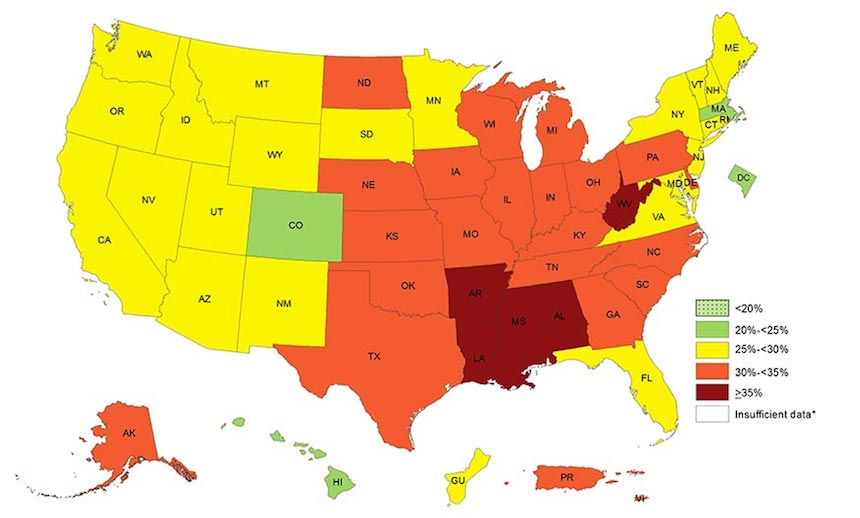

The US Centers for Disease Control and Prevention released a new report on cancer and obesity last week, highlighting that cancers associated with overweight and obesity, including thyroid, liver, kidney, and ovarian cancer, constitute 40% of cancers diagnosed in the USA, with over 630 000 diagnoses in 2014 alone. The study looked at data from the United States Cancer Statistics for 2005-2014. Disparities between sexes in the rates of cancers associated with obesity are especially stark, with 55% of all cancers diagnosed in women being associated with overweight and obesity, compared with only 24% of cancers in men. Most of the disparity is due to endometrial, ovarian, and post-menopausal breast cancer, which together make up 42% of cases of obesity-related cancers. The report did not look at lifestyle factors, but the fact that women are less likely to use tobacco and alcohol makes the sharp burden for women-only overweight and obesity cancers especially confounding.
About two thirds of adults in the USA are considered overweight, with over a third considered obese, defined as a body mass index of 30kg/m2 or higher. In the USA, overweight and obesity-related cancers were especially high in the northeastern and midwestern states. Overweight and obesity-related cancers also defy the downward trend seen with other cancers, growing by 7%, contrasting with a 13% drop in most other cancers.
The increase in overweight and obesity-related cancer gives new urgency to combating the already concerning growth in global obesity rates. With World Obesity Day on October 11, it is worth noting that previous research has found that by 2025, the global obesity rate is projected to reach 21% in women, which is especially concerning as the burden of overweight and obesity-associated cancers falls disproportionately on women. Obesity is no longer primarily of concern for prevention of cardiovascular disease and diabetes, but also for prevention of cancer. The fact that the incidence of obesity-related cancers continues to rise makes a commitment towards progress on obesity, especially for women, an essential public health goal.
-The Lancet


